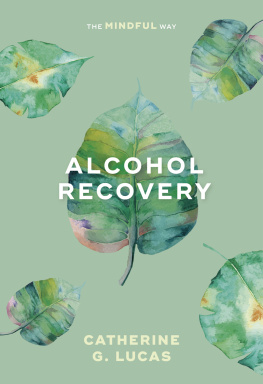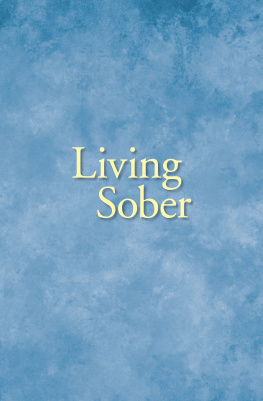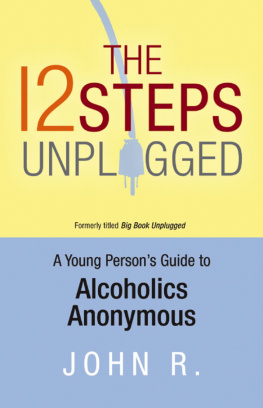Hazelden Publishing
Center City, Minnesota 55012
hazelden.org/bookstore
2018 by Michael Graubart
All rights reserved. Published 2018.
Printed in the United States of America
No part of this publication, either print or electronic, may be reproduced in any form or by any means without the express written permission of the publisher. Failure to comply with these terms may expose you to legal action and damages for copyright infringement.
Library of Congress Cataloging-in-Publication Data
Names: Graubart, Michael, 1958 author.
Title: Three simple rules : uncomplicating life in recovery / by Michael Graubart.
Description: Center City, Minnesota : Hazelden Publishing, 2018. | Includes bibliographical references.
Identifiers: LCCN 2018022041 | ISBN 9781616497767 (softcover) | ISBN 9781616497774 (ebk)
Subjects: LCSH: Twelve-step programs. | AddictsRehabilitation. | Recovering addicts.
Classification: LCC HV5276.G733 2018 | DDC 616.86/03dc23
LC record available at https://lccn.loc.gov/2018022041
Editors note
The names, details, and circumstances may have been changed to protect the privacy of those mentioned in this publication.
This publication is not intended as a substitute for the advice of health care professionals.
Readers should be aware that websites listed in this work may have changed or disappeared between when this work was written and when it is read.
Alcoholics Anonymous, AA, and the Big Book are registered trademarks of Alcoholics Anonymous World Services, Inc.
Cover design: Terri Kinne
Interior design and typesetting: Percolator Graphic Design
Development editor: Heather Silsbee
Production editor: Victoria Tirrel
ISBN 978-1-6164-9777-4 (ebook)
To You
AN INVITATION
Rules. Theyre everywhere.
From morning until night, from cradle to grave, our lives are bound by rules.
Rules from our parents. Rules from school. Rules from our siblings. Rules from the government. Rules from our religion.
Its amazing that any of us can move a muscle given the sheer number of rules, regulations, laws, statues, ordinances, and cultural cues to which we must adhere.
Im not saying that rules are entirely unnecessary. Imagine driving somewhere without speed limits and stop signs. (Actually, that just sounds like Boston, where I live.) Seriously, we couldnt have a society without rules.
The problem is that we spend almost all of our days following rules and placing rules on people around us. Rules about what we can do. What we can say. Where we can go. What we can spend.
Sometimes it seems like thats all life has becomewe dont have room for anything else. As a result, we can forget the very essence of life.
Spending every day making sure were following every rule obscures the really important questions.
Why are we here?
What are we supposed to be doing with our short time on earth?
How do we live fulfilling lives?
How can we harness the gift of recovery to become the best versions of ourselves?
In order to reach our highest potential as human beings, we need to stop thinking, at least for a moment, about the thousands of rules laid out for us each waking moment. If we truly want to have enjoyable, fruitful, spiritual, meaningful, and sober lives, there are just three key rules by which we need to live.
Three simple rules.
Those three simple rules come from the Big Book of Alcoholics Anonymous and go like this:
Trust God. Clean house. Help others.
Thats it. The key to a happy, useful life in six short words.
Now, just because these rules are simple, that doesnt mean theyre easy. Mastery of the rules takes a lifetime. And just offering my interpretation of them will take up this whole book.
In particular, you may already be apprehensive about that first rule. Especially that word God, maybe because the word God implies too many rules! Seriously, for many people, just the mention of God conjures up feelings of shame and judgment for not being able to live up to countless laws, commandments, and customs. How can such a loaded concept be part of a set of simple rules? Well get back to that question.
But with the purpose of making this book useful for everyone, Im going to make a couple small changes to the way well talk about the rules here.
First, lets change that G-word to another term. One that youve likely heard before if youve ever been to a Twelve Step meeting: Higher Power.
Then, Im going to rearrange the order of the rules slightly. So now they look like this:
Clean house. Help others. Trust your Higher Power.
Eight words instead of six. But still. The simplest possible recipe for a happy, useful life.
Well tackle cleaning house and helping others first, then get back to the big one.
Now, its important to point out here that Im not trying to change tradition or claim that I know a better way to write these rules. Quite the opposite. Im happy to call myself an old-timer in recovery. The rules Trust God. Clean house. Help others, in that order, with those words, have saved my life and have saved the lives of countless other people in the program.
The point is, I want as many people as possibleincluding you, dear readerto be able to know what thats like. I also recognize and respect that understanding and internalizing what it means to trust a Higher Power is often a lifelong process. Doing the work of cleaning house and helping others is often needed to get there.
But if youd like to tackle these in the traditional order, go ahead and read chapter 3 first. Thats your callyou bought the book, after all. Maybe youre old school about recovery, the way I am! Otherwise, well start our journey through these rules from a place that might be more approachable for people coming into recovery today.
So where in the Big Book can we find these rules? There are two pieces to that puzzle.
The first can be found in the foreword called The Doctors Opinion. Back in 1939, the authors of the Big Book realized that the readership may be suspicious of a new and barely proven approach to recovering from alcoholism. So, they thought hearing from a doctor with a history of treating alcoholic and addicted patients would help legitimize the whole thing.
Also, the initial primary audience for the book was doctors. The Big Books authors figured that doctors would read the book and then prescribe it for their alcoholic patients.
The doctor they chose was Dr. William Silkworth.
In Silkworths foreword, he says once a psychic change has occurred, the very same person who seemed doomed, who had so many problems he despaired of ever solving them, suddenly finds himself easily able to control his desire for alcohol, the only effort necessary being that required to follow a few simple rules.
Sounds like a good deal, right? He doesnt name those rules, however. For the text of the three rules themselves, we need to turn to chapter 7, Working with Others. There, trust God, clean house, and help others are all introduced as central tenets of the program that should be explained to newcomers who are just starting out.
Who is the genius who first pulled all of these concepts together into the rules as we know them? Im not sure, but it wasnt me.
So, what do I and this book have to offer you? This book is an invitation to a better understanding of the three simple rules that come to us from the Big Book of Alcoholics Anonymous. But more importantly, its an invitation to simplify your life and your recovery.
These rules, by the way, are useful to everyone, not just recovering alcoholics or addicts. So if youre a civilian or normie (as we like to call non-addicts) reading this, welcome! This is an invitation for you, too.
Next page




